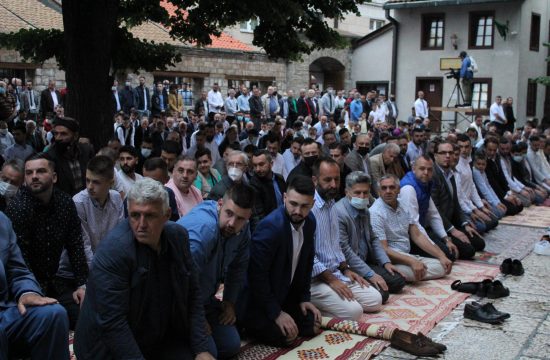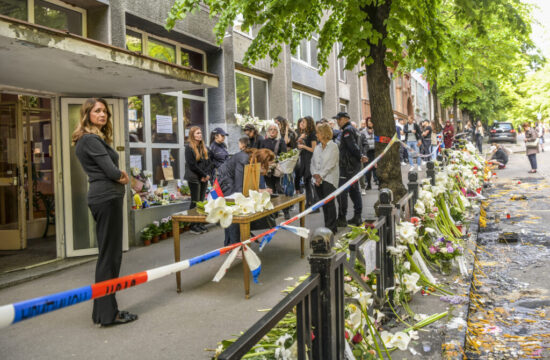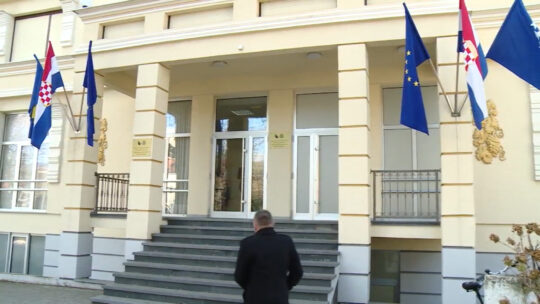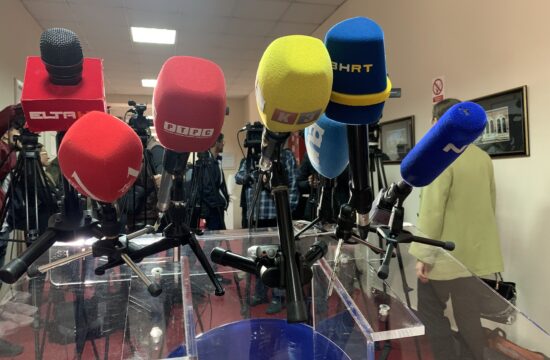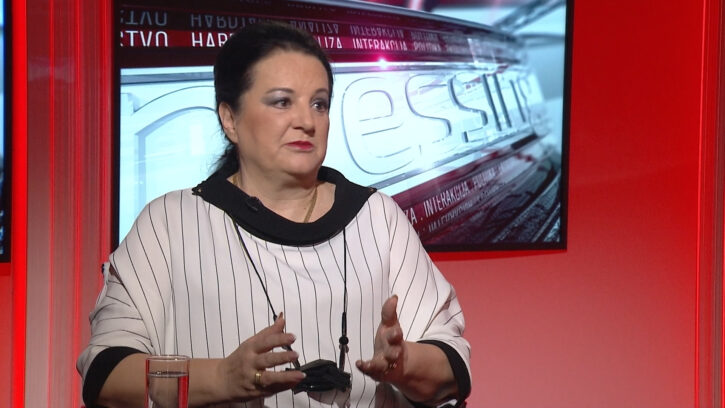
The ‘RS Day’ used to be an ordinary day with round tables and ordinary speaches, nothing spectacular, but then it became a spectacular event, former minister in the RS government and economy expert Svetlana Cenic told N1’s Amir Zukic, when asked about the unconstitutional holiday the ‘RS Day,’ celebrated in this entity on Wednesday.
“There is a Constitutional Court decision saying the holiday is unconstitutional, but why? The (semi-autonomous, Serb dominated) Republika Srpska (RS) entity keeps saying that the holiday is celebrated since 1992. That’s the time when the Republic of Bosnia and Herzegovina existed, and as such, that is a secessionist move,” Cenic said. “Izetbegovic’s appeal to the Constitutional Court only helped the Bosnian Serb leader Milorad Dodik so he could now make a parade (in Banja Luka).”
The Constitutional Court banned the celebration of the Day of the RS in 2015, granting an appeal by Bakir Izetbegovic, who was at that time the Bosniak member of the country’s tripartite Presidency.
The reason stated was that the celebration falls on the same date as an Orthodox religious holiday, and celebrating it is, therefore, discriminating against the mostly Muslim Bosniaks and the mostly Catholic Croats.
The Court gave the RS Government six months to find a new date for the celebration, but the request has so far been ignored.
RS authorities, most notably those from the ruling party of then-RS President Milorad Dodik, the Alliance of Independent Social Democrats (SNSD), but also from Bosnian Serb opposition parties, contested the decision and called for the adoption of constitutional amendments that would remove foreign judges from the Constitutional Court, whom they blame of siding with Bosniaks.
The RS Government also organised a referendum within Republika Srpska asking citizens whether January 9 should be celebrated anyway and citizens voted in favour.
“To my great sorrow, the real parade was on December 25 when the RS showed its true colours, by banning peaceful protests when the police attacked its own people when they pulled out automatic rifles against the protesters, and when they mad all the arrests and when arrest warrants were issued. That is a parade for me,” said Cenic.
The ‘Justice for David’ movement organised a mass protest on December 25, demanding the truth about David Dragicevic’s death. David, 21, was murdered in March 2018 and initially, police said that he had taken drugs and drowned in a nearby river. This explanation sparked public outrage and angered the young man’s father who swore he would pursue justice no matter what.
Davor Dragicevic believes police is covering up the murder and protecting some politically connected suspects.
When asked to comment on the appearance of the Bosnian Croat leader Dragan Covic at the celebration of the ‘RS Day’, Cenic said he was probably there to incite Dodik to the celebration of the Bljesak and Oluja (Flash and Storm) operations.
The two operations were conducted by the Croatian army. The forst operation was conducted against the forces of the self-declared Republic of Serbian Krajina (RSK) from 1–3 May 1995. and the Storm operation was the last major battle of the Croatian War of Independence and a major factor in the outcome of the Bosnian War (1992-1995).
“Mr Covic visited Banja Luka on countless occasions, and yet the number of Croats is rapidly diminishing in this entity. They have no rights there and just like Bosniaks, they can't vote for their own representatives in the Presidency,” Cenic noted.
Bosnia’s Presidency consists of three members, each coming from one of the constituent peoples, Bosniaks, Serbs and Croats. The Bosniak and Croat member are elected in the Bosniak-Croat shared entity of the Federation of Bosnia and Herzegovina (FBiH), and the Serb member is elected in the Serb dominated Republika Srpska entity. Serbs in the FBiH cannot vote for candidates from the RS, as Croats and Bosniaks are unable to vote for candidates from the RS.
This rule applies not only to Bosnia’s Presidency, but to other levels of government, as well. However, Bosnian minorities are also prevented from voting for their reresentatives in the Presidency and in 2009 Dervo Sejdic, a Roma representative and former Head of the Jewish Community, Jakob Finci, sued Bosnia for it’s discriminatory constitution barring them – as they are neither Bosniaks, Croats or Serbs – of running for president or upper house lawmaker.
The European Court of Human Rights in Strasbourg ruled in favour of Sejdic and Finci, saying the state is discriminating against them as a Roma and a Jew. Bosnian authorities were unable to implement this and other similar verdicts to this day.

